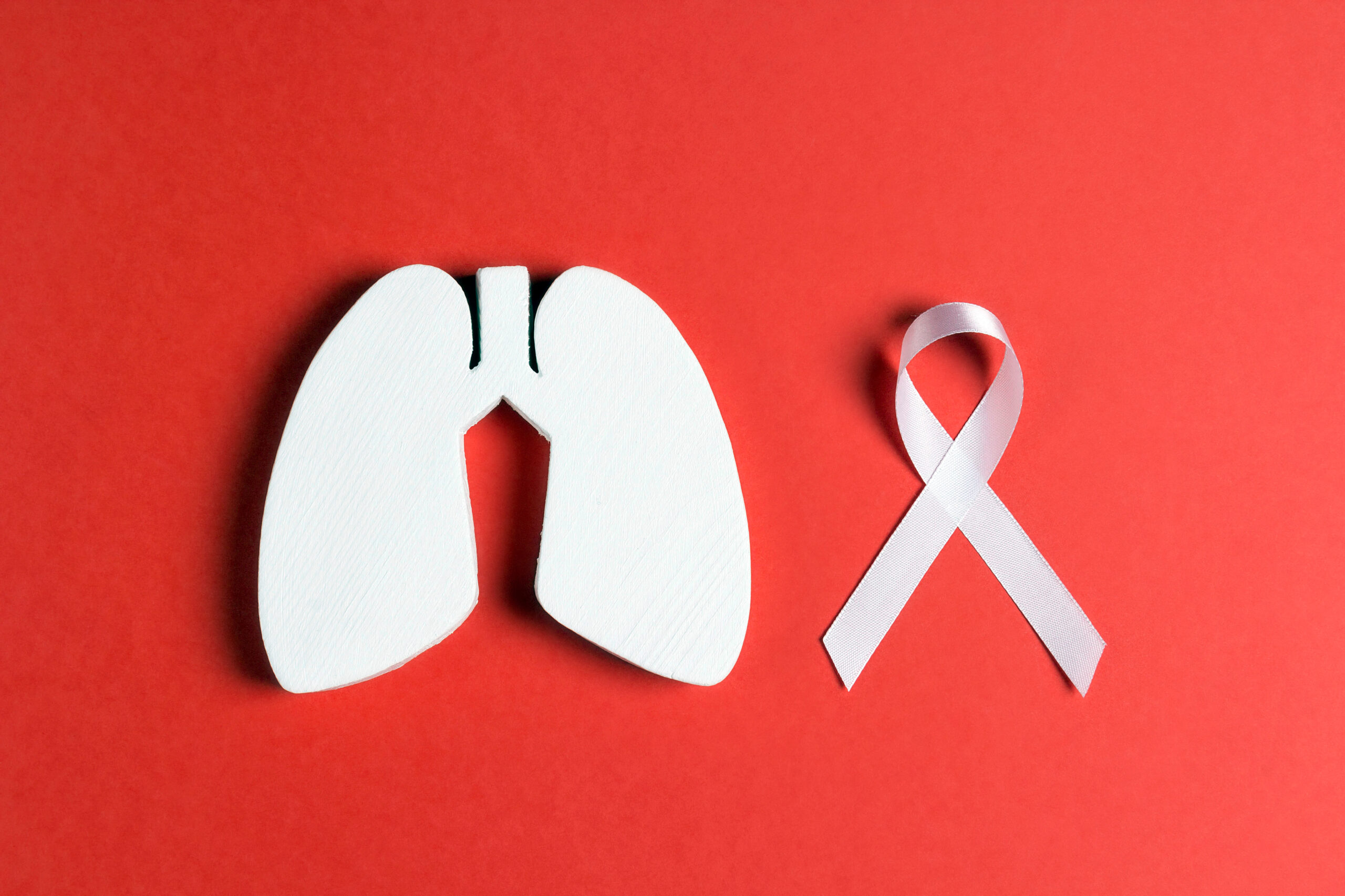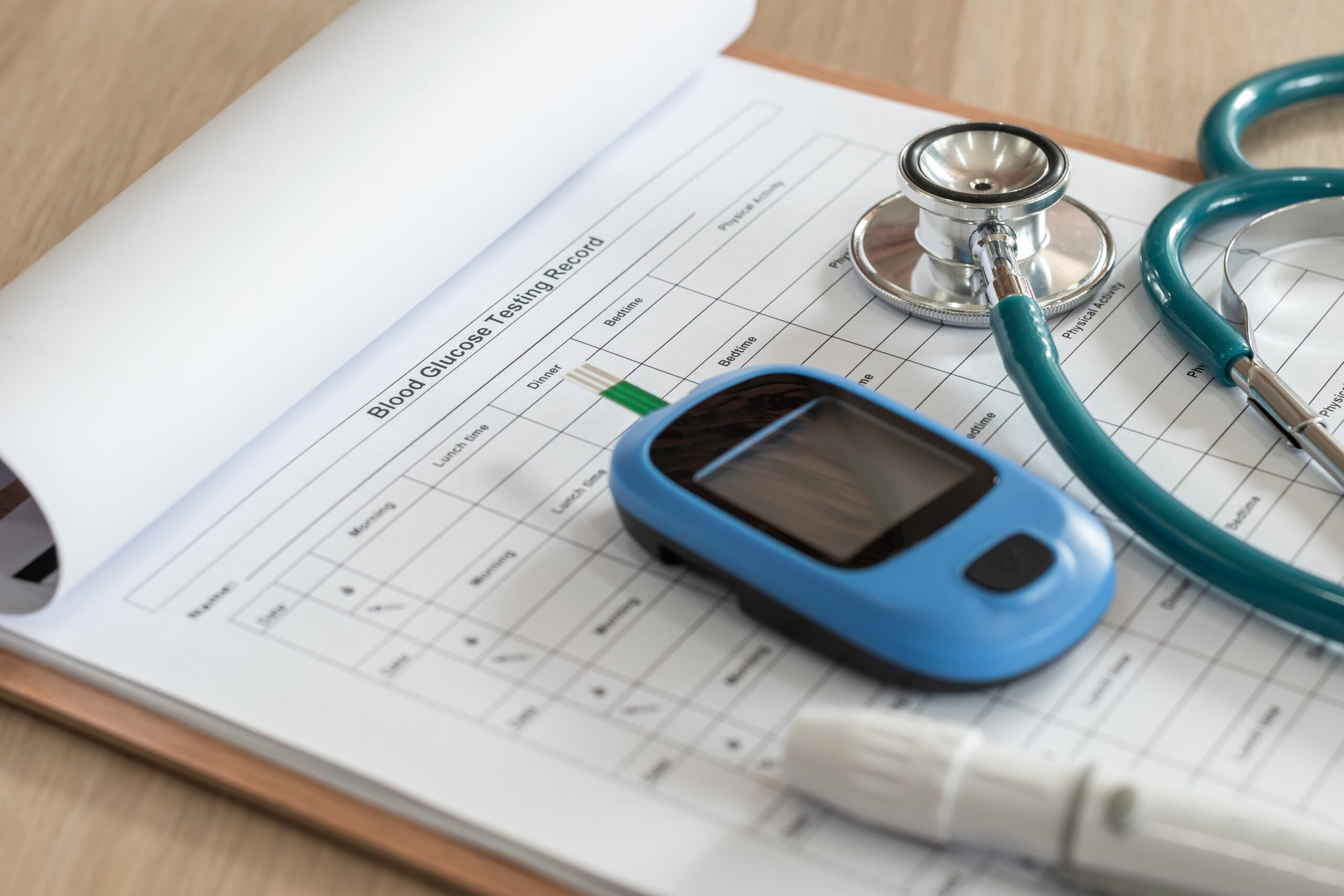Diabetes often develops without warning signs. According to the CDC, more than 38 million people in the U.S. live with diabetes, and many do not even know they have it. That is why it is important to know the basics, especially the differences between prediabetes, type 1 diabetes, and type 2 diabetes.
What Is Diabetes
Diabetes is a health condition where your body has trouble managing blood sugar. It can happen when your body does not make enough insulin or cannot use insulin the right way. Over time, too much sugar in the blood can cause serious problems, including heart disease, vision loss, and kidney damage.
There are three main types: prediabetes, type 1 diabetes, and type 2 diabetes.
Prediabetes
Prediabetes happens when blood sugar levels rise above normal but are still below the diabetes range. It does not usually cause symptoms, so many people do not know they have it. The good news is that you can take steps to turn things around.
According to the CDC, over 98 million adults in the U.S. have prediabetes. That is about 1 in 3 adults. Most do not know they have it.
Even with prediabetes, you may start noticing the following symptoms:
- Feeling more tired than usual
- Being thirstier
- Using the bathroom more often
The best way to stop prediabetes from turning into type 2 diabetes is to make small lifestyle changes.
Maryland’s HealthChoice Diabetes Prevention Program (DPP) is a free, year-long program for eligible Medicaid members. It includes weekly or monthly sessions with a trained coach, group support, and tips for eating healthier, staying active, and managing stress.
People in the program often lose 5–7% of their body weight and feel more energetic. Research shows that DPP can lower your risk of getting type 2 diabetes by up to 58%, and even more if you are over 60.
Type 1 Diabetes
Type 1 diabetes develops when your body no longer produces insulin. It often appears in children or young adults, but can start at any age. This form progresses quickly and requires daily insulin and regular blood sugar checks to stay healthy.
Common diabetes symptoms include:
- Losing weight without trying
- Feeling very tired or sick
- Needing to urinate more often
- Feeling thirsty all the time
- Blurred vision
If you notice these signs, get tested right away. People with type 1 diabetes need daily insulin, blood sugar checks, and ongoing care from a provider.
Type 2 Diabetes
Type 2 diabetes is the most common form and usually develops gradually. Your body still produces insulin, but has trouble using it effectively. Because symptoms can be mild or absent early on, many people live with it for years without knowing.
Anyone can develop type 2 diabetes, but the chances go up if you are over 45, carry extra weight, or have close family members who have been diagnosed with diabetes.
Signs to look for:
- Fatigue
- Increased thirst
- Frequent urination
- Slow-healing cuts
- Blurry vision
Eating well, being active, and taking medicine if needed can help manage type 2 diabetes and avoid complications.
How Jai Medical Systems Supports You
At Jai Medical Systems, we are here to help support you in your health journey in a variety of ways. If you qualify, you can join the HealthChoice Diabetes Prevention Program at no cost. We also offer health education classes to help you make informed decisions about your care.
Topics include diabetes care and management, weight management, asthma, smoking cessation, and hypertension. Classes are available both online and in person, and transportation may be provided if you need it.
If you are ready to make a healthy change, call 1-888-JAI-1999 or talk to your provider to learn more about how to join.
If you qualify for Medicaid, you can enroll at any time. In Maryland, all Medicaid plans are managed by HealthChoice.
What exactly is Medicaid and HealthChoice? Here’s more about these programs and how to enroll in Maryland Medicaid.
What Is Medicaid?
Medicaid is a program that provides free or low-cost health insurance to people with limited income. Each state has its own Medicaid program and benefits.
Services included in most Medicaid plans:
- Family planning
- Doctor’s services
- Hospital services
- Home health aides
- Lab and X-ray services
In Maryland, Medicaid is managed by the Maryland Department of Health.
What Is HealthChoice, and How Is It Related to Medicaid?
HealthChoice is the name of Maryland’s managed health care system for Medicaid. It provides comprehensive health benefits and services to qualifying children and adults. .
With HealthChoice, healthcare coverage is available through one of nine Managed Care Organizations (MCO). If you are eligible for Medicaid, you can choose your own MCO. In Maryland, you can choose from several MCOs.
Here are some tips to consider when selecting your managed care organization: :
- Make sure the MCO provides service in your area.
- Make sure the MCO’s provider network includes the doctors, hospitals, and pharmacies you want to use.
- Consider the quality and other ratings of the Health Plan by checking out the MCO Consumer Report Card (link to PDF document)
- Make sure the MCO provides the services you want. For example, you may want an MCO with a more comprehensive vision benefit.
How to Get Covered With HealthChoice
Getting started with HealthChoice is relatively easy. Here’s what to do:
- Apply for benefits. Visit the Maryland Health Connection (MHC) website. This is where you can fill out an application. You can also use the MHC app on Apple or Android, or call 1-855-642-8572.
- Review plan options. Use a HealthChoice guide to compare MCOs and find a good plan.
- Submit your documents. If you qualify for Medicaid, you must show that you are eligible. Your income level and identity are examples of documents you may need to show.
- Choose your doctor and MCO. You may use this MCO search tool to find a doctor or hospital.
Jai Medical Systems is proud to be a Managed Care Organization participating in the HealthChoice program. We aim to provide Maryland residents with high-quality healthcare benefits and services. Contact our team at JMS today at 1-888-524-1999 to learn more.
Flu season runs between December and March. Getting a yearly flu shot can reduce your risk for the flu. It can also help you stay healthy all year long, even during flu season.
Here’s more about the benefits of annual flu shots.
What Is a Yearly Flu Shot?
A yearly flu shot is a vaccine that can reduce your risk for the flu. The flu virus changes every year. This means you can get infected with a new virus every flu season.
Every year, scientists develop a new vaccine. The new vaccine is designed to protect against the new strains of flu viruses.
What Do Flu Shots Protect Against?
Flu shots can protect you from influenza, or the “flu” for short. The flu is an infection of the nose, throat, and lungs. It can cause symptoms including fever, cough, and headache.
Many people who get the flu can treat it at home. But some people can get severe symptoms that could land them in the hospital. The CDC says the flu caused 100,000 to 710,000 people to go to the hospital from 2010 to 2023.
Flu shots do not offer 100% protection against the flu, but they can certainly help. Annual flu shots can prevent you from having severe symptoms.
People at high risk of getting really sick from the flu are strongly encouraged to get flu shots. This includes children as young as 6 months old, older adults, and women who are pregnant. The flu shot is for anyone who wants to avoid illness during flu season and spreading it to others.
How Annual Flu Shots Can Prevent Illness and Save Lives
The flu can cause serious illness but can also be severe enough to cause death. Yearly flu shots can save lots of lives, as they can help everyone stay protected. A flu shot can help you protect others, even if you rarely get the flu.
Some people cannot get the flu shot and remain unprotected all year long. Children under six months old cannot get the flu shot. Neither can people who are allergic to the ingredients in flu shots.
Getting the flu shot can protect these individuals and you as well.
When Should You Get a Yearly Flu Shot?
The best time to get a flu shot is before winter. The CDC says everyone should get vaccinated before the end of October. A flu shot could help you enjoy the holiday season even more, especially if it helps you and your loved ones avoid illness.
If you forget about the yearly flu shot, it’s never too late to get one. Many providers will remind you about the flu shot again in December. This is when National Influenza Vaccination Week takes place.
Ask your doctor about when you should get your yearly flu shot. Flu vaccines are available at many pharmacies and urgent care centers. It’s possible your school or workplace could also offer the flu vaccine.
A flu vaccine can provide protection even if you get sick. Do you need help finding a clinic that offers flu shots? Jai Medical Systems can help you find a flu shot provider in your area. Contact us at 1-888-524-1999 and learn more about our benefits and services.
Regular cervical cancer screenings can help you stay healthy. It can help your doctor find and treat cervical cancer early on.
When is the best time to get a cervical cancer screening? Here’s what you should know.
What Are Common Types of Cervical Cancer?
Squamous cell carcinoma and adenocarcinoma are the most common types of cervical cancer.
Squamous cell carcinoma makes up about 9 in 10 cervical cancers. It grows in cells located in the outer part of the cervix.
Adenocarcinoma makes up the majority of other cervical cancers. It starts in cells located in the inner part of the cervix that connects the vagina to the uterus.
Most cervical cancers are caused by a sexually transmitted infection (STI) called human papillomavirus (HPV). HPV can infect the cells in the cervix to cause cancer.
Other factors may also increase your risk for cervical cancer and HPV. These risk factors are:
- Smoking and tobacco use
- Weak immune system
- High number of sexual partners
- Other STIs
What Is the Screening Process for Cervical Cancer?
A cervical cancer screening involves two tests: an HPV test and a Pap smear. The HPV test checks your cells for the HPV. The Pap smear checks for abnormal cells. These tests can be done at a health clinic or doctor’s office.
During these tests, you will be asked to remove your clothing from the waist down. Your doctor will use a special instrument to look at the inside of your vagina.
Next, your doctor will examine your vagina and cervix. A long cotton swab will be used to collect a sample of cells from your cervix. The sample will be sent to a lab and checked for cancer.
What Are the Screening Guidelines for Cervical Cancer?
If you are female, ask your doctor about when to get cervical cancer screenings. Your doctor can recommend a schedule based on your medical history.
The American Cancer Society (ACS) and CDC have their own screening guidelines.
ACS Guidelines:
- Cervical cancer screenings should start at the age of 25.
- After 25, women should get a primary HPV test every 5 years until 65.
- After 25, women can get a Pap test every 3 years if a primary HPV test is not available.
- Women can stop cervical cancer screening if they are over 65 and:
- Had regular screenings in the last 10 years, and
- Had normal results for the last 25 years, or
- Had a total hysterectomy (removal of cervix and uterus) for a non-cancerous condition.
CDC Guidelines:
- Cervical cancer screenings should start at age 21.
- After 30, women should get a primary HPV test every 5 years until 65.
- After 30, women can get a Pap test every 3 years if a primary HPV test is not available.
- Women can stop cervical cancer screening if they are over 65 and:
- Had at least 3 Pap tests or 2 HPV tests in the past 10 years, and
- Had normal or negative results, or
- Had a total hysterectomy for a non-cancerous condition.
About 11,500 new cases of cervical cancer are diagnosed in the U.S. every year. Cervical cancer screenings can lead to early treatment and recovery if you are diagnosed with this condition.
Jai Medical Systems can connect you with a women’s health provider or your primary care provider for this important screening, so contact us today at 1-888-524-1999 to learn more.
Protect Yourself from STIs: What You Need to Know
Sexually transmitted infections (STIs) affect millions of Americans in any given year.
Knowing how to protect yourself from STIs can help you stay healthy. Here are some sexual health tips that can help you reduce your risk for STIs.
What Are STIs?
An STI is an infection you can get through sexual contact. It can happen during vaginal sex, oral sex, or anal sex. Infections may be caused by a virus, parasite, bacteria, or fungus.
Anyone who has sex or genital skin-to-skin contact can get an STI. However, certain behaviors can put you at higher risk.
STI risk factors include:
- Having sex without a condom
- Having multiple sex partners
- Having sex with people you don’t know very well
- Having sex while using drugs or alcohol
What Are the Most Effective Ways to Protect Against STIs?
The most effective way to protect yourself against an STI is to not have sex. This practice is known as abstinence.
Other ways to reduce your risk for STIs include:
- Getting the HPV and hepatitis B vaccines
- Using a condom every time you have sex
- Reducing your number of sex partners
- Seeing your provider for STI testing
- Avoiding sex when using drugs or alcohol
When to Get Tested for STIs
Many STIs do not cause symptoms. This can make it difficult to know if you have one. Here are some instances where you may want to consider STI testing:
- You had sexual contact without using a condom.
- You learned that your sexual partner has an STI.
- You think you were exposed to an STI.
- You are experiencing symptoms of an STI.
What Are the Most Common STIs and Their Symptoms?
There are more than 30 different STIs, according to the World Health Organization. Here are some of the most common types.
Syphilis
Syphilis can spread when someone comes into contact with open sores on an infected person. Tiny, painless sores are the first symptom of syphilis. Later on, it can cause symptoms including rash, hair loss, and sore throat.
Treatments for syphilis has been in shorter supply recently, which makes being aware of it and doing your best to avoid infection even more important.
Chlamydia
Chlamydia is the most frequently reported STI in the U.S. It is caused by bacteria and spreads through bodily fluids. Common symptoms are pain during sex and urination.
Herpes
Herpes is caused by a virus. It spreads through bodily fluids when open sores are present. Itching and sores near the genitals are some of the many common herpes symptoms.
HIV
Human immunodeficiency virus (HIV) can be spread when an infected person shares bodily fluids with another. Over time, this virus can turn into AIDS when not treated. Early-stage HIV can feel like the flu, with symptoms including fever, chills, and rash.
HPV
Human papillomavirus (HPV) is the name of a group of around 200 viruses. Nine in 10 cases of HPV go away on their own, but some can turn into cancer. The most prominent symptom of HPV is warts.
Gonorrhea
Gonorrhea usually spreads at the same time as chlamydia through bodily fluids. Its symptoms include painful urination and discharge from the penis or vagina.
Ask your provider about STI testing if you think you might have an STI. Your provider can talk to you in more detail about testing and sexual health.
Jai Medical Systems can connect you with a health provider today. Contact us at 1-888-524-1999 to learn more about our benefits and services.
Colorectal (colon and rectal) cancer is the third most common cancer in the world. It is more slightly common in men than in women. Colon cancer screening can often lead to early detection and treatment.
What Is Colon Cancer?
Colon cancer is cancer that begins in your colon or large bowel. Sometimes, colon cancer is referred to as colorectal cancer. This is because colon cancer and rectal cancer share many of the same features.
Colon cancer occurs when cells in your colon experience changes in their DNA. When this happens, cells can grow rapidly and out of control. In some cases, a tumor can grow.
Colon cancer cells can destroy nearby healthy tissues. They can also break away and spread to other organs and parts of the body.
How Common Is Colon Cancer in Men?
About 1 in 23 men will be diagnosed with colorectal cancer at some point in their life. In 2024, an estimated 54,210 men will be diagnosed with colon cancer.
When Should Men Start Getting Screened for Colon Cancer?
Many men can have their first colon cancer screening at the age of 45. Colon cancer screening is also known as a colonoscopy.
During this test, your doctor uses a long, thin tube with a video camera to view the inside of your colon. Then, your doctor collects a small sample of your tissue. Next, your tissue sample is sent to a lab where it is checked for colon cancer.
How Often Should Men Be Checked After The First Colonoscopy?
If you are in good health, your doctor may recommend a colonoscopy every 10 years after your first screening. After you turn 75, your doctor will determine whether you need more tests based on your health status. Colon cancer screening is no longer recommended after you turn 85.
If you meet risk factors for colon cancer, your doctor may recommend being screened more often. Risk factors for colon cancer include:
- A personal history of colon cancer or polyps
- A family history of colon cancer
- A personal history of inflammatory bowel disease
- A possible hereditary colorectal cancer syndrome
- Previous radiation treatment to the belly or pelvic area
Take Action: Raising Awareness for Colon Cancer Screening
Colon cancer screening is an important part of men’s health, especially if you meet the risk factors for colon cancer. If you have male friends and family over the age of 45, it may be a good idea to tell them about the importance of screening.
Here are some ways to take action and raise awareness about colonoscopies:
- Share risk factors of colon cancer with others.
- Tell your friends over the age of 45 to ask their doctors about colon cancer screening.
- Share facts about colon cancer on social media.
- Send e-cards to male friends and family to remind them about screening.
- Participate in a fundraiser for colon cancer research.
Jai Medical Systems can connect you with a men’s health provider today. Contact us at 1-888-524-1999 to learn more about our benefits and services.
Prenatal care and postpartum care are for women who are pregnant or who just gave birth. These health services offer many lasting benefits for you and your baby.
Here’s what these services are and how to contact JMS if you need help finding a provider.
What Is Prenatal Care?
Prenatal care is also known as prenatal wellness. It is the health care you receive during pregnancy. The main goal of prenatal care is to help you and your baby stay healthy.
Prenatal care appointments are held at least once a month. You meet with your doctor to talk about your pregnancy. You may also have checkups and tests. Tests can reveal whether you have a condition that requires treatment before your baby is born.
What Is Postpartum Care?
Postpartum care is also known as postpartum wellness. It is health care you receive for three to 12 weeks after your baby is born.
During these appointments, your doctor will check your physical and mental health. This is done to see how you are adjusting to life after having a baby. Your doctor will also examine your newborn.
What Do These Care Processes Look Like?
Here’s what to expect from prenatal and postnatal care.
Prenatal Care
Prenatal care starts the moment you learn you are pregnant up until the day you have your baby. Appointments are spaced about a month apart for the first six months. After that, appointments may be held once or twice a week.
Prenatal visits are an ideal time to mention any symptoms to your doctor. You may also undergo routine tests at every appointment, including:
- Screenings for diabetes and preeclampsia
- Blood pressure reading
- Weight check
- Abdominal measurements
- Fetal heart rate monitoring
These tests can help your doctor detect issues or problems early on. This allows you to have them treated before your baby arrives.
Postpartum Care
Postpartum care lasts up to 12 weeks. During postpartum visits, your doctor will weigh and examine your baby. They may check your newborn’s hearing and vision.
Topics that may come up during postpartum care include:
- Breastfeeding and formula-feeding
- Postnatal vitamins
- Diet and nutrition
- Vaginal bleeding
- Bowel movements
- Mood changes
- Sleeping patterns
- Birth control
- Exercise
Your doctor may also share tips on self-care and how to manage your maternal health during your early postpartum days.
What Are the Specific Benefits of Each?
Prenatal and postpartum care can reduce the risk of problems in you, your baby, and your family. This is one of the top benefits of these services.
Long-term benefits of prenatal care:
- Learn about your baby’s growth and development
- Treat chronic conditions early on
- Reduce the risk of illness and disease
- Learn more about pregnancy
Long-term benefits of postnatal care:
- Learn important tips about nursing and feeding
- Start using birth control
- Experience a healthy and fast recovery
- Reduce your risk of postpartum depression
- Learn more about newborn care
- Reduce your risk of hospital readmission
Prenatal and postnatal care can benefit everyone in the family—not just expectant mothers. These services can teach your partner and children about pregnancy and newborn care. Most importantly, they can protect your health and that of your baby and help you live a long, happy life with your loved ones.
Jai Medical Systems provides case management services to all pregnant members. Your case manager can help connect you with prenatal and postpartum providers. Your case manager can also connect you with individualized resources and programs to ensure you receive the best care possible during and after your pregnancy. Contact us at 1-888-524-1999 and ask to speak with an OB case manager today.

2022
November is Lung Cancer Awareness Month. This vital time of year draws attention to lung cancer and lung cancer screenings. Here’s what you need to know about a lung cancer screening.
During the winter, it’s easy to spend more time with your screen. But too much screen time can have negative effects on your health. Now that daylight savings time has begun, it’s time to think about reducing your screen time.
Read More.
It can be hard to maintain your routine in winter, especially when it comes to exercise or other activities. With colder temperatures and fewer daylight hours, it can be easy just to snuggle up until it gets warm again. But staying active in the winter can have great benefits on your overall health. Apart from increasing your energy level and improving your sleep, sticking to your activities can improve your mood and reduce your risk of getting seasonal affective disorder (SAD), which can cause fatigue and depression.
Read More.
 Did you know that your IE browser is outdated?
Did you know that your IE browser is outdated?









